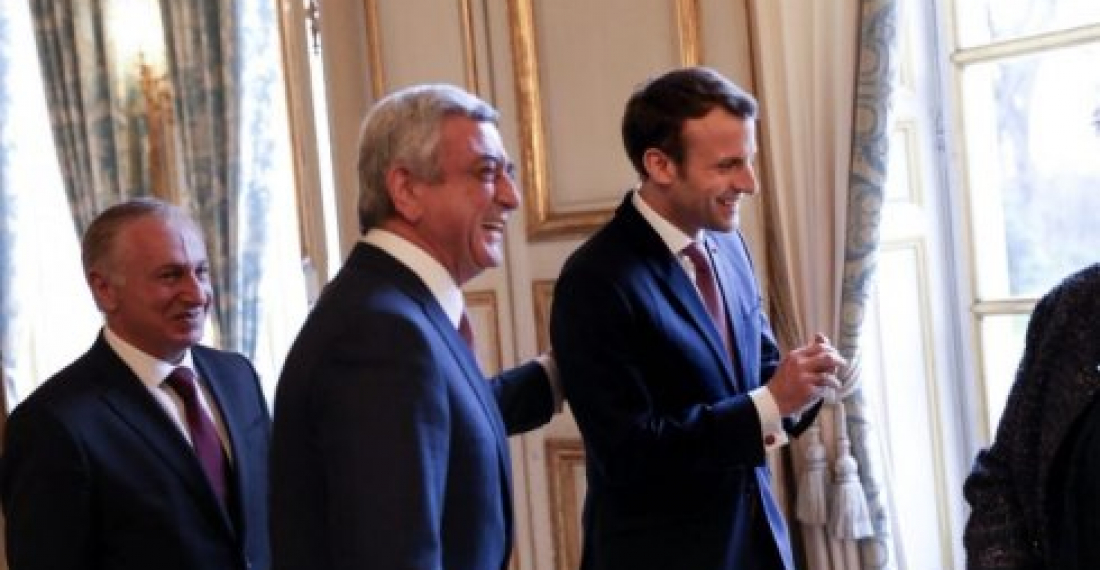Президент Франции Эмануэль Макрон во вторник (23 января) приветствовал своего армянского коллегу Сержа Саргсяна в Елисейском дворце, где стороны обсудили двусторонние и международные вопросы. Выступая на пресс-конференции после рабочего обеда, президент Франции рассказал о давней исторической дружбе между Францией и Арменией и затронул текущие усилия по разрешению нагорно-карабахского конфликта. Президент Макрон сказал своему армянскому гостю, что убежден в том, что конфликт не заморожен и назвал нынешнюю ситуацию ненадежной.
Президент Макрон добавил:
"Только путем переговоров возможно будет достичь долгосрочного решения на благо народов, проживающих в регионе.
Это будет решение, которое потребует смелых компромиссов и конкретных действий от всех сторон. Возобновление переговоров с вашей стороны, г-н Президент, и вашего азербайджанского коллеги со встречи в Женеве 16 октября, и которые были продолжены на уровне министров иностранных дел, обнадеживает.
За ними должны последовать конкретные действия.
Я также поздравляю всех нас, поскольку встреча министров иностранных дел в Кракове на прошлой неделе прошла в конструктивной атмосфере, и я надеюсь, что этот энтузиазм поможет нам продвинуться вперед.
Мы прекрасно понимаем, что этот процесс по-прежнему неустойчив, а ситуация на местах нестабильна, поэтому абсолютно необходимо возобновить диалог и добиться прогресса.
Во всяком случае, я заверил г-на Президента в моем личном участии и моей твердой решимости, что Франция продолжит играть роль беспристрастного посредника. Мы внимательно следим за ситуацией, и вместе с нашими российскими и американскими партнерами мы рассматриваем любую возможность для продвижения процесса урегулирования".
источник: commonspace.eu по материалам elysee.fr
фото: Президент Макрон приветствует президента Армении Сержа Саргсяна в Елисейском дворце, 23 января 2018 года






